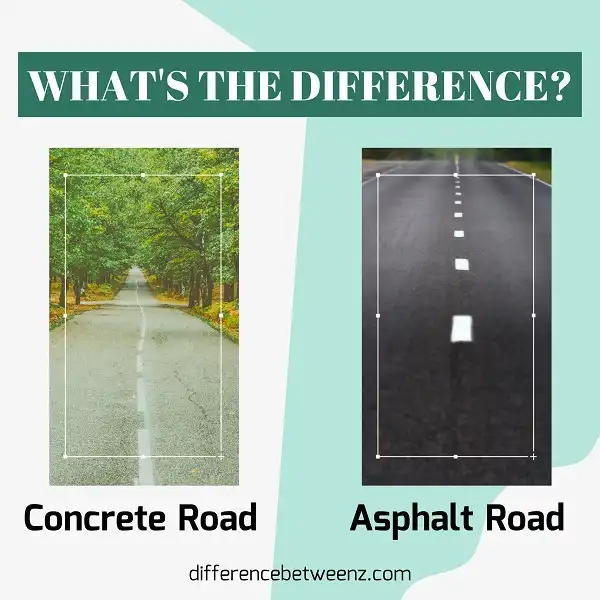There is a big difference between concrete and asphalt roads. Both have their advantages and disadvantages, but one might be a better option for your specific needs. Here we will explore the differences between the two options so you can make an informed decision.
What is Concrete Road?
Concrete roads are built using a mixture of cement, water, and aggregates, such as sand and gravel. The cement binds the other materials together, creating a strong, durable surface that is resistant to weathering and traffic. Concrete roads are typically wider and smoother than asphalt roads, making them ideal for high-speed travel. They can also be built with a variety of textures and patterns, giving them a unique look. Concrete roads are usually more expensive to build than asphalt roads, but they require less maintenance and last longer. As a result, they are often used for major highways and other high-traffic areas.
What is Asphalt Road?
Asphalt roads are a type of pavement made with asphalt, a sticky, black material that is derived from petroleum. Asphalt roads are cheaper to construct than concrete roads and they can also be built faster. Asphalt paving is done using a hot mix method, in which the asphalt is mixed with aggregates, such as sand and gravel, at a high temperature to create a viscous liquid that can be easily spread and compacted. The asphalt mix is then placed over a bed of subgrade material, which is typically compacted soil or gravel. Once the asphalt mix has been placed, it is compacted using rollers to create a smooth, level surface. Asphalt roads are known for their durability and resistance to weathering, making them a popular choice for high-traffic areas.
Difference between Concrete and Asphalt Roads
Concrete and asphalt roads are both designed to provide a smooth, durable surface for vehicles. However, there are some key differences between the two types of roads. Concrete roads are made from a mixture of cement, water, and aggregates, such as gravel or sand. This mixture is poured into forms and allowed to cure for several days before being smoothed and polished. Asphalt roads, on the other hand, are made from a mixture of asphaltic concrete and aggregate. This mixture is laid down in layers and compacted using heavy machinery. Asphalt roads are typically smoother than concrete roads, but they can also be more susceptible to damage from water and chemicals.
Conclusion
The two types of roads have different benefits for both drivers and municipalities. Drivers prefer concrete because it provides a smooth ride, while asphalt is cheaper to produce and install. Municipalities prefer asphalt because it lasts longer than concrete and doesn’t require as much maintenance. There are pros and cons to each type of road, so it’s important to consider your needs before making a decision.


